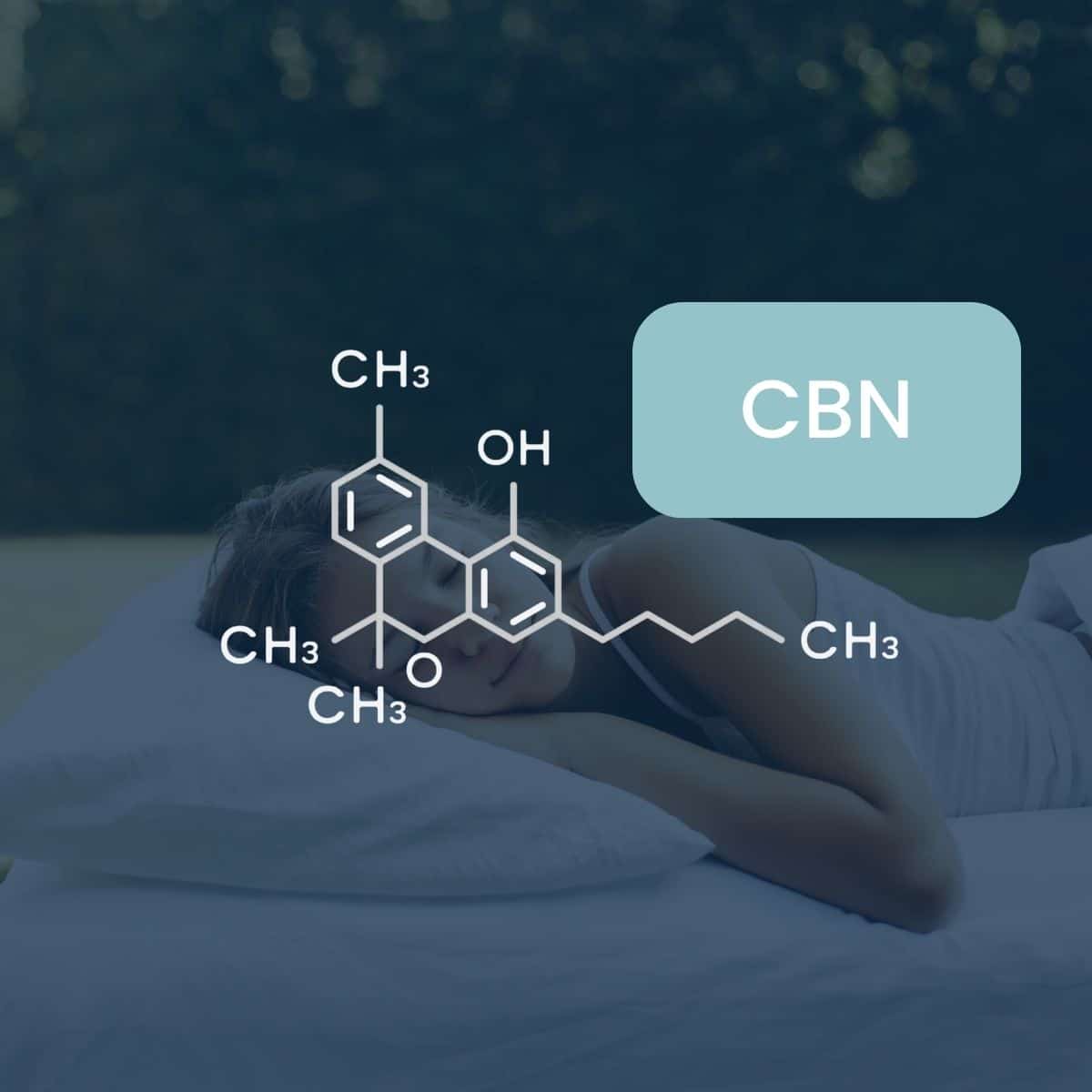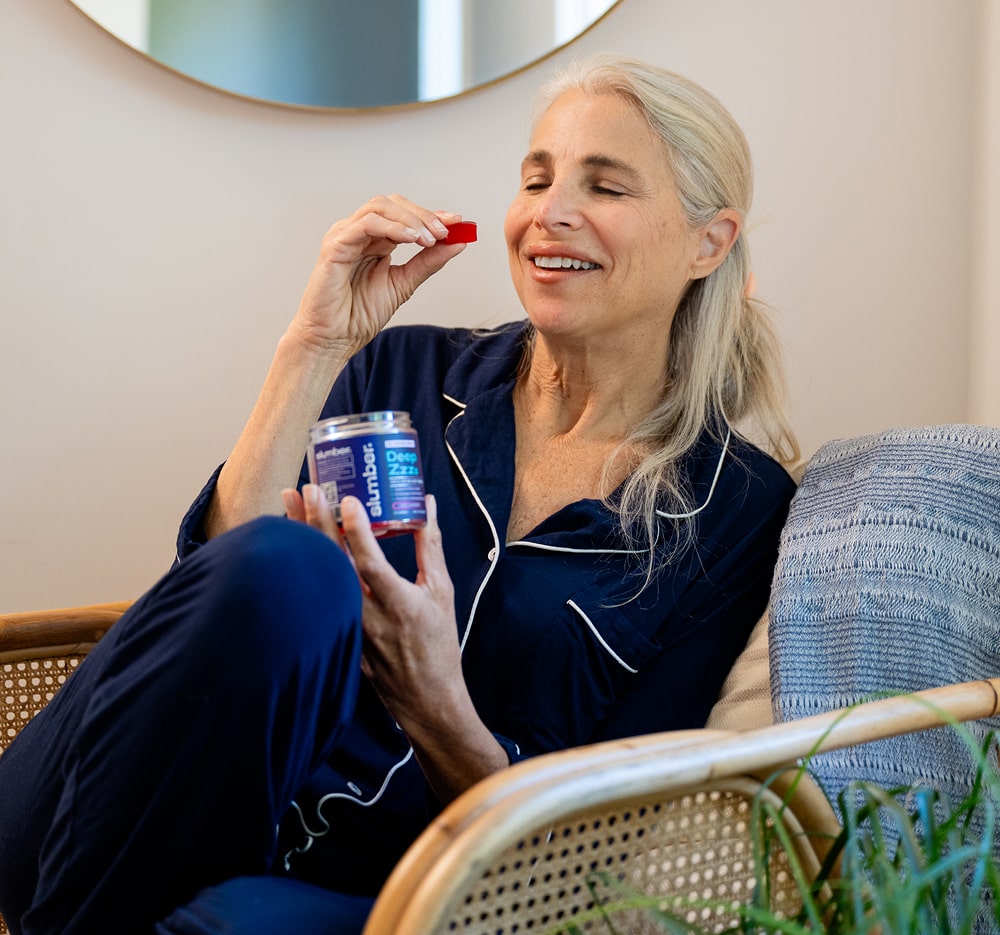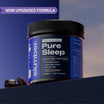Better days begin at night™ - but they flourish in the morning.
Picture this: It's 6 AM. The first light of dawn is breaking, your coffee is brewing, and for once, you actually feel... alive. Not groggy. Not reaching for your third alarm. Actually alive.
This isn't a fantasy. It's what happens when you understand the science of morning routines - and more importantly, how they're intrinsically connected to your sleep quality the night before.
After analyzing sleep data and building sleep aids for the past 4 years and conducting independent sleep studies, we've discovered something profound: your morning routine doesn't start when you wake up. It starts the moment you close your eyes the night before.
The Sleep-Morning Connection: What Science Tells Us
Recent research from Stanford's Sleep Medicine Center reveals that the quality of your morning is 73% determined by your sleep architecture from the previous night. Specifically, the amount of time you spend in deep sleep (stages 3 and 4) directly correlates with:
- Morning cortisol regulation
- Cognitive performance for the first 4 hours after waking
- Emotional resilience throughout the day
- Physical energy and motivation levels
Dr. Matthew Walker, author of "Why We Sleep," puts it simply: "Morning grogginess isn't a personality trait - it's a sleep debt symptom."
This is particularly relevant for those of us navigating the unique sleep challenges of midlife and beyond. Research published in Nature shows how hormonal changes, stress accumulation, and the natural aging process can fragment our sleep architecture, leading to those all-too-familiar difficult mornings.
The Circadian Reality Check
Your environment plays a crucial role in your morning routine success. Consider these factors that might be affecting your sleep-wake cycle:
- Climate and Season: Extreme temperatures, humidity levels, and seasonal light changes all impact sleep quality
- Urban vs. Rural: Light pollution, noise levels, and air quality affect circadian rhythms differently
- Altitude (for those in elevated areas): Lower oxygen saturation can affect sleep quality and morning alertness
- Indoor Environment: Most Americans spend 90% of their time indoors, making artificial light management crucial
Understanding these factors isn't about making excuses - it's about crafting a morning routine that works with your specific environment and biology.
The Science-Backed Morning Routine Framework
After reviewing dozens of sleep studies and analyzing customer success patterns, we've identified the morning routine elements that actually move the needle on daily wellbeing.

1. The Strategic Wake Time (Not Just Early)
Forget the "5 AM Club" pressure. The optimal wake time isn't about the clock - it's about consistency. Leading sleep researchers, including neuroscientist Dr. Kristen Willeumier, recommend sleeping between 10 PM and 6 AM to align with natural hormone production cycles. Your body begins producing melatonin around 9 PM, signaling it's time to prepare for sleep.
The Science: Your body's cortisol awakening response (CAR) - the natural hormone surge that helps you wake up - operates on a 24-hour prediction cycle. Recent research published in Nature Communications demonstrates how consistent wake times help stabilize your circadian clock. When you wake at consistent times, your body pre-emptively begins cortisol production 30 minutes before your usual wake time, making mornings naturally easier.
Optimal Sleep Schedule Based on Research:
- Ideal bedtime: 10:00 PM - 11:00 PM
- Optimal wake time: 5:30 AM - 7:30 AM
- Total sleep duration: 7-9 hours for adults
Practical Application:
- Choose a wake time you can maintain 7 days a week (including weekends!)
- Use light-based alarm clocks that simulate sunrise
- Place your alarm across the room to prevent snooze abuse
2. The 20-Minute Phone Boundary

Here's what happens when you check your phone immediately upon waking:
- Cortisol spikes 23% higher than normal (University of California, Irvine study)
- Dopamine receptors become overstimulated, creating anxiety
- Your brain shifts into reactive mode instead of intentional mode
- Read more on our blog about a pre-bed tech detox to improve your sleep.
The Alternative: Create a "launch sequence" for your day:
- Feet on floor
- Glass of water on nightstand (pre-positioned)
- 5 deep breaths with extended exhales
- Move to your designated morning space
3. Strategic Hydration Protocol

During sleep, you lose approximately one pound of water through breathing and perspiration. This overnight dehydration directly impacts brain function and metabolism. Published research shows that drinking water first thing in the morning can boost your metabolism by up to 30% for 40 minutes.
The Science-Backed Protocol:
- Start with 16-20 oz of room temperature water immediately upon waking
- This single action improves cognitive function and reduces brain fog
- Enhances mood and energy levels throughout the day
- Kickstarts your metabolic processes after the overnight fast
Enhanced Hydration Tips:
- Keep water on your nightstand for immediate access
- Add a pinch of high-quality salt (pink Himalayan or Celtic sea salt) to support adrenal function
- Wait to consume caffeine until after initial hydration
- For those over 55: Consider adding electrolytes to combat age-related hydration challenges
4. Delay Your Caffeine (The 60-90 Minute Rule)

Wait at least 60-90 minutes after waking before consuming caffeine. Your cortisol levels are naturally highest in the morning, and adding caffeine during this peak can:
- Increase stress responses unnecessarily
- Interfere with natural energy cycles
- Lead to afternoon crashes
- Diminish caffeine's effectiveness when you actually need it
Better Morning Energy Options:
- Herbal tea like green tea or matcha (gentler caffeine release)
- Adaptogenic beverages (ashwagandha, rhodiola)
- Simply rely on your natural cortisol spike with proper hydration and light exposure
5. Light Exposure Optimization

Get outside for 5-10 minutes of natural sunlight exposure within the first hour of waking. This is perhaps the most critical step for circadian rhythm regulation. Morning light exposure is your circadian rhythm's master controller.
What Morning Sunlight Does:
- Suppresses residual melatonin production naturally
- Triggers healthy cortisol release for improved alertness
- Increases serotonin levels for mood enhancement
- Sets your "circadian anchor" for better sleep 14-16 hours later
Research in EMBO Reports shows how light exposure directly regulates the mammalian circadian clock through specific neural pathways.
Key Insight: Even on cloudy days, natural light provides the necessary spectrum for circadian entrainment. The light intensity outdoors on an overcast day is still significantly higher than indoor lighting.
Environmental Considerations:
- High-altitude areas: Sunshine is approximately 25% more intense, requiring shorter exposure times
- Northern latitudes: May need longer light exposure in winter months
- Urban areas: Seek parks or open spaces to maximize natural light quality
- Seasonal adjustments: Use light therapy lamps during darker months
Practical Light Exposure Tips:
- 5-10 minutes of direct outdoor exposure (no sunglasses initially)
- East-facing window meditation or stretching if you can't get outside
- Morning walk around your neighborhood for combined light and movement benefits
No Natural Light? Invest in a 10,000 lux light therapy lamp. Position it 16-24 inches from your face while having morning coffee or reading for 20-30 minutes.
6. Movement as Medicine

Engage in light physical activity or mindfulness practice for 10-20 minutes. Morning movement isn't about intense exercise - it's about signaling your body to transition from rest to active mode. Research shows that just 5 minutes of morning movement:
- Increases BDNF (brain-derived neurotrophic factor) by 35%
- Improves insulin sensitivity for the next 12 hours
- Reduces inflammatory markers throughout the day
- Helps balance cortisol levels and reduce stress
Age-Appropriate Morning Movement Options:
- 45-55: Dynamic stretching, yoga flow, or brisk walking
- 55-65: Tai chi, swimming, or resistance band exercises
- 65+: Chair yoga, balance exercises, or gentle qigong
- All ages: Mindful breathing exercises, progressive muscle relaxation, or 5-10 minute meditation
7. Understanding Your Chronotype
Your chronotype - whether you're naturally a "morning lark" or "night owl" - is genetically determined and affects your optimal routine timing. Research from Nature Communications identifies three main chronotypes:
Morning Chronotypes (25% of population):
- Natural wake time: 5:30-7:30 AM
- Peak performance: Early morning to noon
- Ideal routine: Early exercise, substantial breakfast
- Bedtime tendency: 9:00-10:30 PM
Evening Chronotypes (25% of population):
- Natural wake time: 8:00-10:00 AM
- Peak performance: Afternoon to evening
- Ideal routine: Later morning light exposure, flexible meal timing
- Bedtime tendency: 12:00 AM-2:00 AM
Intermediate Chronotypes (50% of population):
- Natural wake time: 6:30-8:30 AM
- Peak performance: Mid-morning to early afternoon
- Ideal routine: Moderate flexibility in timing
- Bedtime tendency: 10:30 PM-12:00 AM
Working with Your Chronotype: Rather than fighting your natural tendencies, optimize within your biological constraints while maintaining wake time consistency. Even night owls benefit from consistent schedules - just shifted later.
8. The Mindfulness Moment
Before the day's demands take over, establishing mental clarity is crucial. Studies from Johns Hopkins show that just 10 minutes of morning mindfulness practice:
- Reduces cortisol levels by 23%
- Improves emotional regulation for 8+ hours
- Enhances focus and decision-making capacity
Simple Practice Options:
- Gratitude journaling (3 specific items)
- Breath work (4-7-8 breathing pattern)
- Meditation apps designed for beginners
- Progressive muscle relaxation
9. Strategic Nutrition Timing
Modern research reveals that when you eat matters as much as what you eat. The breakfast debate has evolved beyond "most important meal" to understanding individual needs:
For Traditional Breakfast Eaters:
- Eat within 1-2 hours of waking
- Focus on protein-rich foods (25-30 grams)
- Include healthy fats and complex carbohydrates
- Avoid sugar-laden processed foods
For Intermittent Fasting Practitioners:
- Extend your overnight fast to 12-16 hours
- If you ate dinner at 8 PM, break your fast around 10 AM-12 PM
- Ensure adequate hydration during fasting periods
- Consider your stress levels - high cortisol may require earlier eating
Important Note: If you experience stress, blood sugar issues, or cortisol challenges (common in midlife), prioritize a protein-rich breakfast over fasting.
Advanced Morning Optimization Strategies

Cold Exposure Therapy (Optional)
Clinical research shows that brief cold water exposure can provide significant benefits for alertness and mood:
- 30-60 seconds of cold shower or face plunge
- Increases alertness and mental clarity
- Improves mood and builds stress resilience
- Best timing: After initial hydration and before caffeine
Age Considerations: Start gradually with lukewarm water and progress slowly. Those with cardiovascular conditions should consult their healthcare provider first.
Optimal Morning Exercise Timing
If you prefer more intense morning exercise, research shows that working out between 7-9 AM may be optimal for:
- Enhanced fat burning and metabolism
- Improved circadian rhythm entrainment
- Better mood and cognitive function throughout the day
Exercise Intensity Guidelines:
- Start with light to moderate intensity if new to morning workouts
- Avoid high-intensity exercise immediately upon waking
- Listen to your body's response and adjust accordingly
- Remember: Even 10 minutes of movement provides significant benefits
The Evening Setup for Morning Success
Here's the truth: 80% of morning routine success is determined by your evening routine. Our customer CBN research studies showed that participants who followed a consistent evening protocol with our top-selling Deep Zzzs Gummies experienced:
- 72 additional minutes of sleep per night
- 82% improvement in sleep quality scores
- 67% reduction in morning grogginess
- 91% reported "easier mornings" after 30 days
Creating Your Optimal Sleep Environment

Research-backed bedroom conditions for quality sleep:
- Temperature: 60-67°F (15-19°C) - cooler than most people think!
- Humidity: 30-50% relative humidity
- Darkness: Complete darkness using blackout curtains or eye masks
- Sound: Minimize noise or use white noise/nature sounds
- Electronics: Remove all screens from bedroom; use analog alarm clocks
The Non-Negotiable Evening Elements:
- Digital sunset: All screens off 90 minutes before bed (blue light suppresses melatonin)
- Temperature drop: Lower bedroom temperature 2 hours before sleep
- Consistent timing: Same bedtime within 30-minute window (yes, even weekends!)
- Stress release: Journal, stretch, or practice gratitude
- Natural sleep support: Consider CBN-based formulations for deeper, more restorative sleep
Evening Routine Timeline (for 10 PM bedtime):
- 8:00 PM: Final meal/snack, begin dimming lights
- 8:30 PM: All screens off, switch to relaxing activities
- 9:00 PM: Warm shower or bath (the temperature drop afterward promotes sleep)
- 9:30 PM: Reading, journaling, or gentle stretching
- 9:45 PM: Sleep support supplementation if used
- 10:00 PM: Lights out
Customizing Your Routine: One Size Doesn't Fit All
Your optimal morning routine depends on several factors:
Chronotype Considerations:
- Larks (early risers): Front-load complex tasks
- Owls (night people): Gentle morning transitions
- Hummingbirds (flexible): Consistency matters most
Age-Specific Sleep & Morning Needs:
Research reveals important age-related patterns:
- Adults (35-64): Need 7-9 hours of sleep; benefit from consistent routines
- Older Adults (65+): Need 7-8 hours; often sleep longer than middle-aged adults
- Midlife (45-65): May experience hormonal sleep disruptions requiring extra morning recovery time
- Active Seniors (65+): Benefit from earlier light exposure and gentle morning movement
Contrary to popular belief, recent studies show that older adults actually tend to sleep longer on average than middle-aged adults - it's the quality and architecture of sleep that often needs support.
Life Stage Adaptations:
- Post-menopausal: Extra hydration and movement for joint health
- High-stress careers: Extended mindfulness practice
- Retirees: Purpose-driven activities to maintain structure
- Parents: Simplified versions that model healthy habits
Common Morning Routine Saboteurs (And How to Overcome Them)

1. The Snooze Button Trap. Each snooze cycle creates "sleep inertia" that can last 2-4 hours. Solution: Place the alarm across the room, use a sunrise simulation.
2. Coffee Before Water: Caffeine on a dehydrated system increases anxiety and crashes. Solution: Hydrate first, caffeinate second.
3. Reactive vs. Intentional Starts: Checking email/news creates stress before building resilience. Solution: Complete your routine before engaging with outside demands.
4. Perfectionism Paralysis: Attempting too many changes at once leads to failure. Solution: Add one element every two weeks until the routine is established.
The 30-Day Morning Transformation Protocol
Week 1: Establish consistent sleep/wake times
Week 2: Add hydration and light exposure
Week 3: Incorporate movement and mindfulness
Week 4: Optimize nutrition and evening preparation
Track these metrics:
- Morning energy levels (1-10 scale)
- Time to full alertness
- Afternoon energy sustainability
- Overall mood and productivity
Your Complete Morning Routine Blueprint
Based on the latest circadian rhythm research, here's a sample routine optimized for the intermediate chronotype (adjust timing for your type):
- 5:30-6:00 AM: Wake up consistently (same time every day!)
- 6:00-6:05 AM: Drink 16-20 oz of water immediately
- 6:05-6:15 AM: Get outside for natural light exposure (or use light therapy lamp)
- 6:15-6:30 AM: Gentle movement or mindfulness practice
- 6:30-7:00 AM: Morning hygiene routine (consider ending shower with 30 seconds of cold water)
- 7:00-7:30 AM: Delay caffeine; prepare/eat breakfast or continue fasting window
- 7:30 AM+: Now you can have your coffee and check your phone!
Key Success Factors:
- Start with just 2-3 elements and build gradually
- Track your energy levels and sleep quality to measure impact
- Be patient - circadian rhythm changes take 2-3 weeks to solidify
- Adjust timing based on your chronotype while maintaining consistency
Your Morning Routine Starts Tonight
The path to transformative mornings isn't through willpower or elaborate rituals. It's through understanding the science of sleep and creating sustainable practices that honor your body's natural rhythms.
Recent advances in circadian rhythm research have shown us that small, consistent changes can dramatically impact our sleep quality and morning energy. Whether you're dealing with age-related sleep changes, environmental challenges, or simply want to optimize your daily performance, the key is working with your biology, not against it.
At Slumber, we've spent years researching how natural compounds like CBN can support the deep, restorative sleep that makes great mornings possible. Our clinical studies show that quality sleep isn't just about hours in bed - it's about achieving the right sleep architecture for cellular restoration and morning vitality.
Ready to transform your mornings? It starts with transforming your nights. Because we believe that better days truly do begin at night™.
For more sleep science insights and evidence-based wellness strategies, explore our Sleep Products or read about our CBN Sleep Study to learn more about how Slumber can help your sleep.
Scientific References
This article incorporates findings from cutting-edge circadian rhythm research. For readers interested in exploring the science further:
-
Circadian Clock Regulation: TRAF7 determines circadian period through ubiquitination - Latest research on molecular mechanisms of circadian rhythms
-
Sleep-Wake Cycle Science: Rhythmic transcription and circadian timekeeping - How gene expression patterns stabilize our internal clocks
-
Light and Circadian Function: Recent advances in sleep and circadian rhythms - Comprehensive review of light exposure impacts
-
Chronotype Research: Functional D-box sequences and circadian regulation - Understanding genetic determinants of morning vs. evening preferences
These peer-reviewed studies provide the scientific foundation for the morning routine recommendations in this guide.




















Leave a comment
This site is protected by hCaptcha and the hCaptcha Privacy Policy and Terms of Service apply.